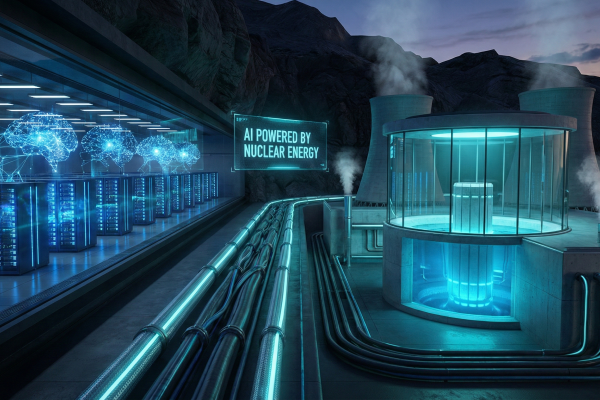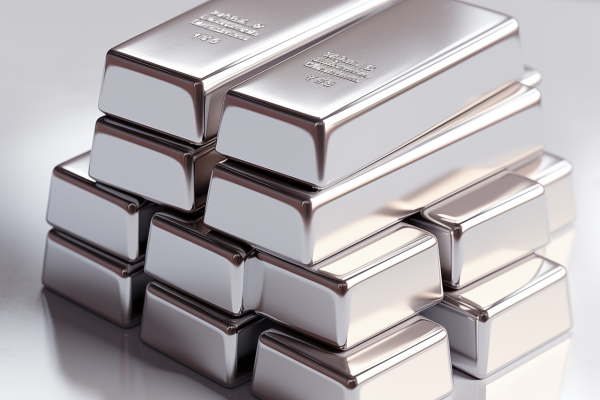March 24th, 2023 | 07:55 CET
First Phosphate, Volkswagen and Vonovia - Winners in climate poker
On March 26, the residents of Berlin will vote on whether their city should become climate neutral by 2030 - 3.6 million inhabitants travel daily by car, bus and train. For mineral explorer companies like First Phosphate, the potential acceleration in demand is already a win-win, as demand for basic materials for batteries increases dramatically. Volkswagen, for example, may soon launch large-scale industrial production of cathode materials (CAM) and precursor materials (PCAM) in Europe, thanks to the go-ahead from regulators. Vonovia is also getting enterprising: the group owns 136,000 apartments in Berlin.
time to read: 4 minutes
|
Author:
Juliane Zielonka
ISIN:
FIRST PHOSPHATE CORP | CA33611D1033 , VOLKSWAGEN AG ST O.N. | DE0007664005 , VONOVIA SE NA O.N. | DE000A1ML7J1
Table of contents:

"[...] We know exactly what we are doing and are implementing what we consider to be a proven technology in an industrially applicable and scalable way. [...]" Uwe Ahrens, Director, Altech Advanced Materials AG
Author
Juliane Zielonka
Born in Bielefeld, she studied German, English and psychology. The emergence of the Internet in the early '90s led her from university to training in graphic design and marketing communications. After years of agency work in corporate branding, she switched to publishing and learned her editorial craft at Hubert Burda Media.
Tag cloud
Shares cloud
First Phosphate: Basic supplier for climate neutrality
This coming Sunday, the citizens of Germany's capital will vote by referendum on whether Berlin should become climate neutral by 2023. If the vote is YES, residents and public institutions have just seven years to make this a reality. The city will stop running internal combustion cars, switch to zero-emission mobility, and renovate its buildings. The model for achieving a climate-neutral city is the example of Oslo. This is exactly where First Phosphate comes into play.
First Phosphate is a mineral extraction company fully focused on the mining and processing of phosphate to produce active cathode material for the lithium iron phosphate (LFP) battery industry. First Phosphate aims to produce with a high level of purity, in compliance with all ESG standards, and with an expected low carbon footprint.
First Phosphate plans to seamlessly integrate from the mine to the supply chains of North America's leading LFP battery manufacturers. These require high-quality, battery-grade active LFP cathode material from a reliable and consistent supply source. Vertical integration guarantees a secure and sustainable supply chain for customers.
As many German companies are expanding their facilities in North America due to the energy crisis caused by sanctions against Russia, this brings us full circle to the potential climate-neutral capital of Berlin. The higher the demand for renewable energy, the more important mining and mineral exploration companies like First Phosphate become. That is because demand must be met in the shortest possible time. Initial results from test drilling are promising. Read more here.
Volkswagen: Green light for battery production
Battery company PowerCo, part of the Volkswagen Group, and Belgian materials technology group Umicore have received the green light for their planned joint venture. The necessary permits were granted in September 2022, meaning the partners can now begin preparations for large-scale industrial production of cathode materials (CAM) and precursor materials (PCAM) in Europe. This is an important step for the future production of batteries and demonstrates the commitment of both companies to a sustainable future. The cathode material is crucial for the performance of a battery. First Phosphate is one of the potential suppliers.
As early as 2025, the joint venture between PowerCo and Umicore will supply PowerCo's European battery cell factories with critical materials for manufacturing. Based in Brussels, the joint venture will cover a significant share of PowerCo's EU demand. Umicore will gain reliable access to an important part of the European demand for cathode materials for electric vehicles. The collaboration promises a secure and efficient supply chain for European battery cell production.
The joint venture is on schedule to produce 160-gigawatt hours of cell capacity per year for CAM and PCAM by the end of the decade. This annual production capacity would be sufficient to manufacture around 2.2 million fully electric vehicles. Both partners are thus making an important contribution to promoting the green mobility transition and further developing a local, sustainable and fully integrated European battery supply chain. The joint venture's location and name will be announced later as the search for a suitable production site continues. Perhaps Berlin would be the right place.
Vonovia - Climate neutrality begins with the landlord
Things are looking anything but rosy for Vonovia on the European real estate market at the moment. If the majority of the referendum in Berlin wins a yes, Vonovia's 136,000 apartments will have to be renovated or upgraded to be climate-neutral. In Brandenburg, the group owns 8,000 apartments. Vonovia is the leading landlord of apartments in Europe. In November 2022, CEO Rolf Buch announced that the group would reduce its spending on new construction and energy efficiency measures by 40% to EUR 850 million by 2023.
One way out of the redevelopment dilemma is to sell Vonovia's apartments to the public sector. In Dresden, for example, Vonovia is planning to sell around 6,000 apartments and is offering the city the opportunity to purchase up to 3,000 of them. Tenants in Dresden were visibly shocked by rent increases of up to 25% due to higher energy and heating costs. The "Stop Rent Madness" action alliance has formed in Dresden against rent increases.
"Vonovia has not proven to be a responsible landlord in the past, and many tenants have suffered from its lack of maintenance policy. Now Vonovia is under increasing pressure, and we fear the worst in the event that the apartments are sold to other private financial investors," explains alliance spokesman Alex Meier. The city should now fix it.
Should it also come to this in Berlin, the Senate would be in debt. Public funding for new buildings and modernization could help. Accordingly, the taxpayer would then pay for Berlin to become a green cloud. In 2016, Oslo opted for the path to climate neutrality. Fourteen years instead of seven for climate transformation seems more realistic than what Berlin is facing.
In climate poker, the need for renewable energy is growing rapidly. With energetic goals such as a climate-neutral capital in Germany, initiatives are putting enormous pressure on local governments. They are then forced to accelerate the change. This leads to higher demand for basic materials such as those First Phosphate can provide. The German automotive group Volkswagen is also doing everything possible to switch to e-battery production. Vonovia has the option of selling to the public sector to further lock in its profits. It remains exciting to see who will have the best hand in climate poker.
Conflict of interest
Pursuant to §85 of the German Securities Trading Act (WpHG), we point out that Apaton Finance GmbH as well as partners, authors or employees of Apaton Finance GmbH (hereinafter referred to as "Relevant Persons") may hold shares or other financial instruments of the aforementioned companies in the future or may bet on rising or falling prices and thus a conflict of interest may arise in the future. The Relevant Persons reserve the right to buy or sell shares or other financial instruments of the Company at any time (hereinafter each a "Transaction"). Transactions may, under certain circumstances, influence the respective price of the shares or other financial instruments of the Company.
In addition, Apaton Finance GmbH is active in the context of the preparation and publication of the reporting in paid contractual relationships.
For this reason, there is a concrete conflict of interest.
The above information on existing conflicts of interest applies to all types and forms of publication used by Apaton Finance GmbH for publications on companies.
Risk notice
Apaton Finance GmbH offers editors, agencies and companies the opportunity to publish commentaries, interviews, summaries, news and the like on news.financial. These contents are exclusively for the information of the readers and do not represent any call to action or recommendations, neither explicitly nor implicitly they are to be understood as an assurance of possible price developments. The contents do not replace individual expert investment advice and do not constitute an offer to sell the discussed share(s) or other financial instruments, nor an invitation to buy or sell such.
The content is expressly not a financial analysis, but a journalistic or advertising text. Readers or users who make investment decisions or carry out transactions on the basis of the information provided here do so entirely at their own risk. No contractual relationship is established between Apaton Finance GmbH and its readers or the users of its offers, as our information only refers to the company and not to the investment decision of the reader or user.
The acquisition of financial instruments involves high risks, which can lead to the total loss of the invested capital. The information published by Apaton Finance GmbH and its authors is based on careful research. Nevertheless, no liability is assumed for financial losses or a content-related guarantee for the topicality, correctness, appropriateness and completeness of the content provided here. Please also note our Terms of use.




